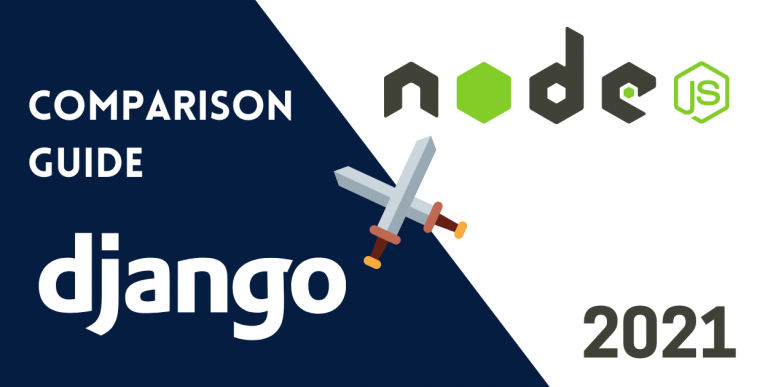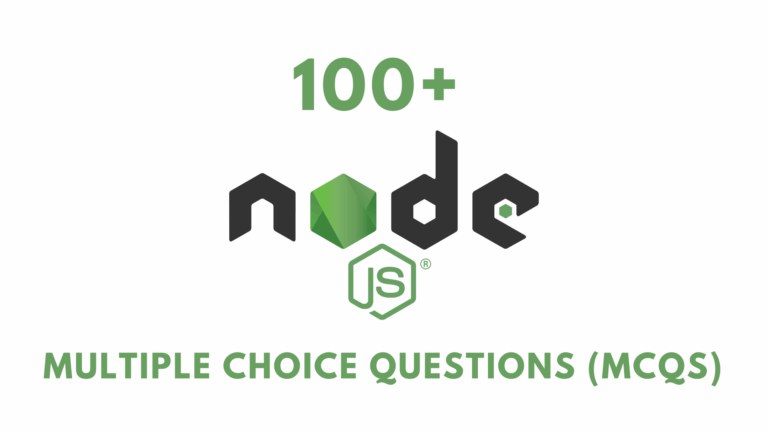New to Rust? Grab our free Rust for Beginners eBook Get it free →
Nodejs vs Django: Ultimate Guide to Choosing the Best Backend Technology

The conflict between Nodejs vs Django as backend technologies has raged on for decades. Django is a Python programming language framework. Nodejs is also a JavaScript programming language framework. Django is a well-known technology with a large community. While Nodejs is still in its infancy, it is undeniably strong.
Nonetheless, both are widely used backend systems with large communities. There are, however, no superior or worse programming languages. Every programming language has its own set of advantages and disadvantages. Furthermore, it is contingent on the developer’s choices.
A web application, as you and I both know, is made up of two parts: a frontend and a backend. The front end is what users see, and it’s only one component of the puzzle. Of course, a significant portion of it comes from the server-side or backend.
The backend, on the other hand, is where the application’s heart or brain is located. The backend is where your application essentially lives. Without it, your application is nothing more than a collection of CSS and HTML, maybe with some JavaScript thrown in for good measure.
I’m not attempting to minimize the front end! Of course, no one wants to see a white website with Consolas or Times New Roman writing all over it, even if the backend is flawless! Yikes!
Developers today have a wide range of programming languages to select from when it comes to web application backend technology. There is a myriad of effective and vital frameworks and languages out there, each with its own set of characteristics to aid in the achievement of a range of goals.
In this Nodejs vs Django comparison guide, I’ll look at the benefits, drawbacks, and technological similarities of the two backend technologies for web development, as well as a few other considerations.
Let’s see who wins!
You can more Nodejs comparison guides below:
Nodejs vs Django: Synopsis
Even though Django and Nodejs were established at separate eras and for distinct reasons, they are both extensively used as server-side (backend) technologies.
Django was established in the fall of 2003. It’s a cross-platform, high-level Python framework designed for server-side development. It has been around for over two decades and adds to the multitude of libraries, tools, and APIs that are accessible. Its goal is to save up time for quicker web development by reducing repetitive processes.
Nodejs, on the other hand, was released in 2009 as a JavaScript runtime that revolutionized the use of JavaScript on the server-side. Its event-driven methodology allows for scalability and efficiency in projects. It is an easy-to-use framework.
Nodejs vs Django: A Quick Comparison
It’s impossible to compare Nodejs vs Django without using at least one criterion. We will evaluate various factors to arrive at a choice since we must make a critical decision about the technology to use for the backend.
So, let us begin the ultimate Nodejs vs Django battle!
#1 Learning Curve
This aspect of the comparison guide focuses on how difficult it is for beginners to learn and use the frameworks. Nodejs although is easy to learn and comprehend framework for starters, it gets complicated when you want to build a complete web application. Topics of asynchronous programming, native methods, and its architecture don’t go very well with amateur programmers usually.
Django just like Nodejs is easy to learn.
However, in contrast to Nodejs, it has a flatter learning curve that makes beginners learn the framework faster. With the help of excellent documentation, learners do not have to flick around the web to look for answers most of the time.
Winner: Django
#2 Application Scalability
The scalability aspect takes note of how easy it is for developers to add features and functionalities to their apps in the future after development. Nodejs comes with stunning support of microservices architecture.
Microservices in Nodejs allows developers to scale their applications from time to time by creating small modules.
Django offers a different solution to scalability problem. Template fragment caching is a technique for caching particular contents rather than re-rendering the block, which is the most desired feature in scalable systems that must handle a large number of actions and requests in a short amount of time.
Winner: Django
#3 Application Security
Django is quite particular about security. It keeps at bay XSS hacks (Cross-site Scripting) by sanitizing its input fields to prevent malware injection through them. It also features an SQL malware injection protection feature.
Nodejs doesn’t come with a dedicated security enhancement setting for web applications. Nodejs developers, need to walk a few extra miles to secure their apps.
Winner: Django
#4 Community Support
You’d be surprised to learn that Nodejs has a vast and globally active community with experienced members! On GitHub, there’s even a larger chunk of developers who help you out with your queries.
The Django community is big too but has moderate levels of activity.
Winner: Nodejs
#5 Full-stack Development
Nodejs can be used both on the front end and the backend proving full-stack web development support. It uses a single language for both, that is, JavaScript.
Django too allows both frontend and backend building but the options are comparatively limited. You will have to make use of other languages to do the frontend.
Winner: Nodejs
Conclusion
The conflict between Nodejs vs Django as backend technologies has raged on for decades. Django is a Python programming language framework.
Nodejs is also a JavaScript programming language framework. Django is a well-known technology with a large community. While Nodejs is still in its infancy, it is undeniably strong.
Read this Nodejs vs Django comparison guide to learn what is right for you!




